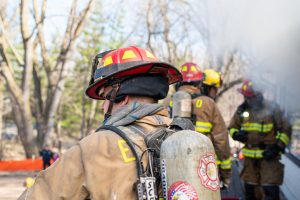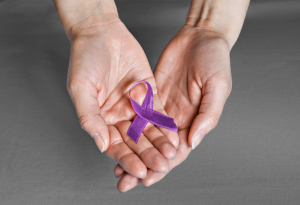Contributed by Nicholas E. Blonien, D.O.
The American College of Lifestyle Medicine (ACLM) lists six key pillars to wellness: sleep, nutrition, exercise, substance use, stress management, and healthy relationships. While these are all essential components of a well-rounded approach to health optimization, there may be a seventh undeclared pillar that deserves our attention: exposure to nature.
In the United States, we spend the majority of our time in the built environment, man-made structures that provide the setting for human activity: cars, roads, buildings, electronic screens and more. As a result, we live far removed from the environment we were intended to operate in – nature.
While it is difficult to measure the physical and psychosocial impacts the built environment has had on human health and wellness, it’s clear that noise, toxic exposures, pollution and more sedentary living are harmful products of this. Escaping from these factors, even for brief periods throughout the week, can make a significant impact on wellness.
Researchers have investigated the effects of routine nature exposure on overall health. They’ve found that activities like “forest bathing” (taking a walk through the woods) can have positive effects on the mind, gut, heart, immunity, endocrine function and more.
To experience a boost to your mental, physical and emotional health:
Be intentional about getting exposure to the natural world.
Walking through a forest or along a lakeside is a great way to escape noise, breathe fresh air and get in some exercise. While stepping out your front door can do the trick, you may find added motivation in a new area to explore. Here’s a map of all the state parks in Minnesota plus information on “Free Park Day,” when vehicle permit fees are waived for all Minnesota state parks. Plus, here are some outdoor recreation ideas from Explore Minnesota.
Look to do this a couple times per week.
Limited research suggests at least 20 minutes of nature exposure a day is important, with at least 120 minutes per week as the goal.
For additional information on the benefits of the outdoors, check out the American Journal of Lifestyle Medicine, Nature as Medicine: The 7th (Unofficial) Pillar of Lifestyle Medicine.
Other no-cost health resources
For emotional and mental health support, the Hometown Heroes Assistance Program (HHAP) provides confidential resources targeting the stress unique to the fire service – including counseling visits and peer support – to Minnesota firefighters and their families at no cost through the MnFIRE Assistance Program. Call 888-784-6634 or click here to learn more and get help.
MnFIRE also offers trainings that focus on firefighter occupational health risks including cancer, cardiac and emotional wellness, plus deep-dive trainings on sleep, nutrition and fitness. Click here to learn more and register your department for a no-cost training.










